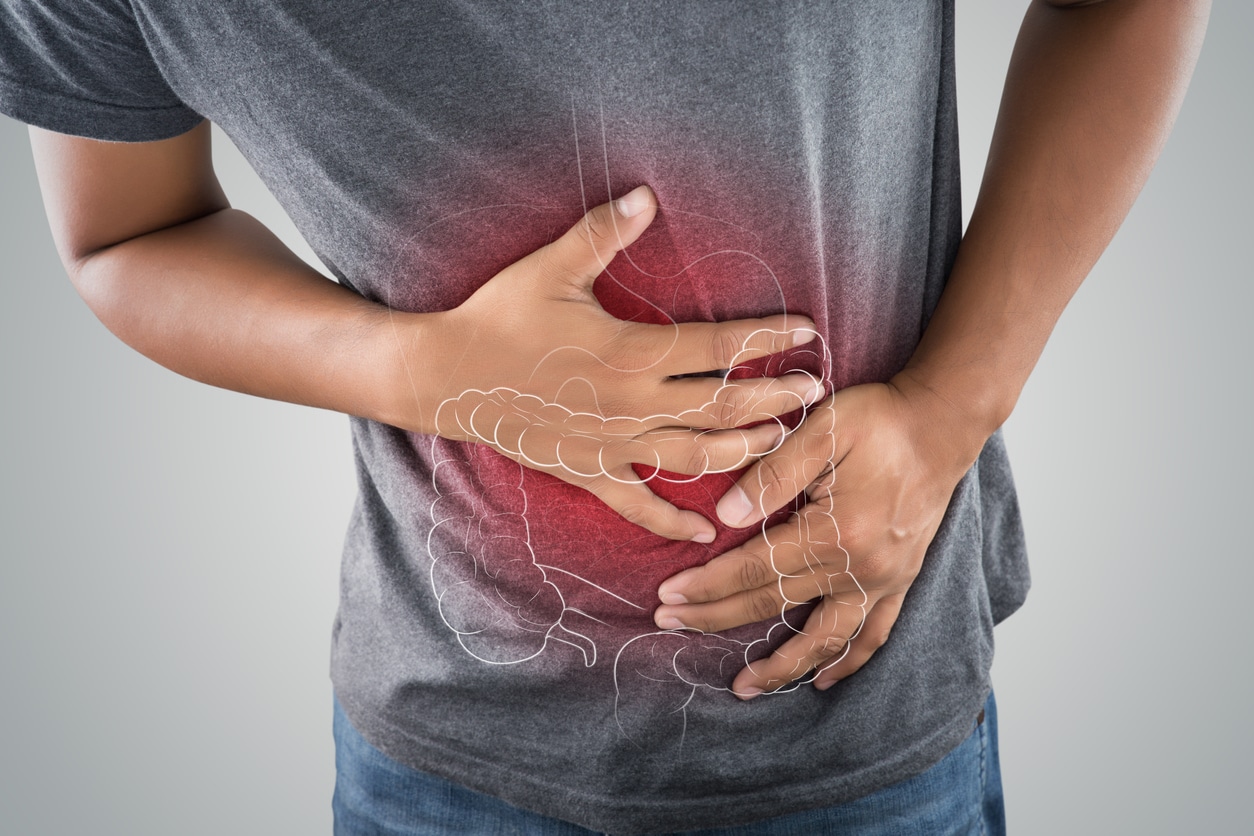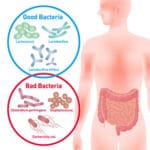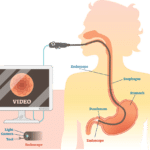CD and UC are both inflammatory diseases that affect the gastrointestinal tract (aka GI tract). The GI tract runs from the mouth to the anus. The section of the gastrointestinal tract that the IBD affects helps determine which disease a patient has.
When an individual has Crohn’s disease, he or she can experience symptoms at any point within the GI tract; however, if an individual has ulcerative colitis, the lining of the large intestine (aka colon) is the only section of the gastrointestinal tract that UC affects.
Many of the symptoms experienced with CD and UC are identical.
Symptoms that ulcerative colitis and Crohn’s disease share include:
- Bloating
- Flatulence (aka gas)
- Diarrhea
- Nausea
- Vomiting
- Cramping
- Constipation
- Brain fog
- Abdominal pain
- Frequent or urgent bowel movements
- Fatigue
- Weight loss
- Night sweats
- Loss of appetite
- Skin issues
- Hemorrhoids
- Menstrual irregularity
- Fever
- Rectal bleeding
- Eye, liver and joint inflammation
Symptoms Associated with Ulcerative Colitis
During a UC flare up, the individual experiences continuous inflammation within the inner lining of the colon and rectum. This inflammation leads to the development of ulcers on the surface of the lining. These ulcers usually produce blood and mucus.
Inflammation typically starts in the lower section of the colon, including the rectum.
With ulcerative colitis, there are no healthy patches between the inflamed sections of colon.
Individuals with ulcerative colitis tend to experience pain in their lower abdominal area.
Symptoms Associated with Crohn’s Disease
Most of the time, CD affects the upper section of the large intestine and the ileum (i.e., the end of the small intestine). Nonetheless, Crohn’s disease can affect any part of the GI tract.
CD may have patches of inflammation with healthy sections in between.
Inflammation can penetrate the deeper layers of the bowel wall.
Crohn’s disease can recur even after surgical removal of the affected section of bowel.
Several non-digestive symptoms are associated more frequently with Crohn’s disease than with ulcerative colitis; these issues include mouth sores, in addition to infections, tears, ulcers and narrowing of the anus. Some other non-digestive problems that may develop due to CD include gallstones, as well as kidney and bile duct issues.
Treatment
Since both UC and CD are autoimmune diseases, the medication a patient receives is designed to suppress his or her overly active immune system.
Ulcerative Colitis Treatment
With proper treatment, patients experiencing mild symptoms of UC usually go into remission.
Crohn's Disease Treatment
Complete remission with CD can occur but is less common. Although many of the medications used for inflammatory bowel diseases overlap, some do not. Choosing experienced medical professionals is vital to attaining the correct diagnosis and receiving the proper treatment. The gastroenterology team at Northeast Digestive has the experience, skill and compassionate demeanor to help you find out if you have an IBD, and if you do, which type you have.




